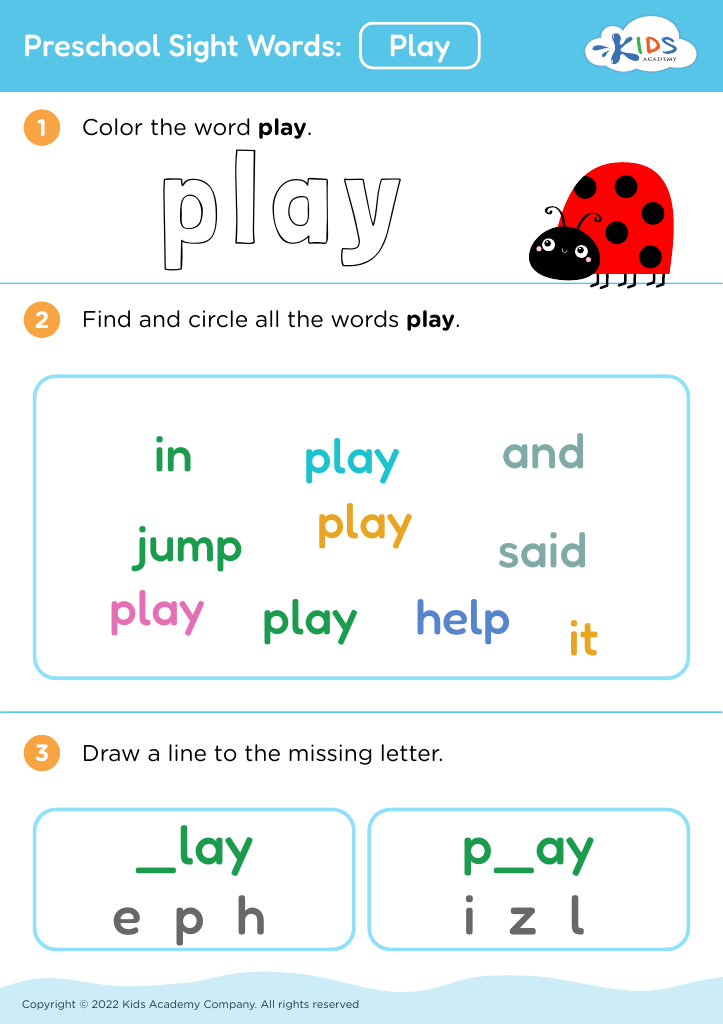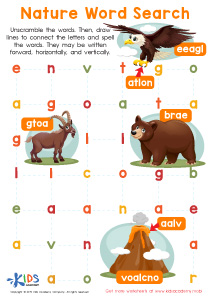Improving reading skills Sight Words Worksheets for Ages 3-5
3 filtered results
-
From - To
Enhance your child's reading abilities with our "Improving Reading Skills Sight Words Worksheets" tailored for ages 3-5! These engaging worksheets focus on helping young learners recognize and master essential sight words, building a strong foundation for reading success. Designed to make learning fun, each worksheet features colorful illustrations and interactive activities that stimulate early literacy skills. Parents and educators can utilize these resources to boost vocabulary, reading comprehension, and independent learning. Foster a love for reading in your little one while promoting confidence and skill development. Explore our collection today and watch your child's reading journey flourish!
Improving reading skills, particularly through sight words, is crucial for children aged 3-5 as it lays the foundation for their future literacy development. Sight words are common words that young readers need to recognize instantly, rather than decode phonetically. Familiarity with these words enhances reading fluency, comprehension, and confidence in young learners.
For parents and teachers, fostering sight word recognition is essential because it enables children to engage more effectively with texts, paving the way for a lifelong love of reading. Early mastery of sight words helps children to tackle more complex sentences and narratives as they progress in their literacy journey. Moreover, reading together significantly contributes to vocabulary expansion and cognitive development, encouraging critical thinking skills.
Engaging with sight words can also improve social skills; children who can read confidently often share their knowledge and engage in discussions, fostering communication skills and peer relationships. By emphasizing sight word improvement, caregivers play a pivotal role in creating a supportive learning environment that reinforces early literacy and promotes academic success. This foundation will benefit children not just in their early education but throughout their entire lives, equipping them with skills that extend beyond the classroom.




















